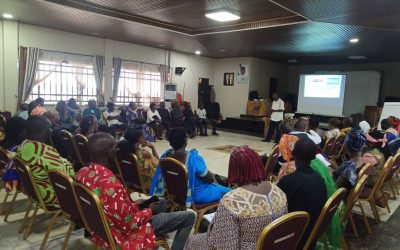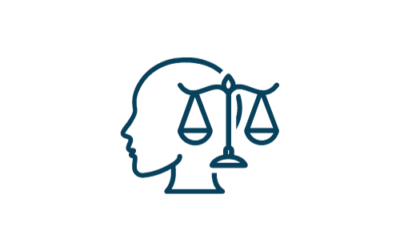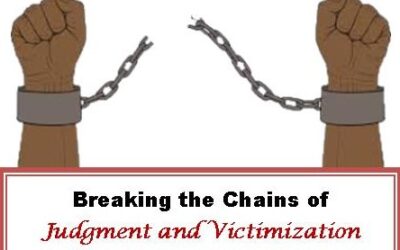One of the major causes of the decade long civil war (even though people hardly mention it) was due to the fact that we made history worthless by failing to learn from the past. On the eve of the war, virtually every aspect of the Sierra Leone society was politicized, including the application of the rule of law. The promulgation of many laws were premised on what benefit it would bring to those in power and their stooges; and how it would help entrench them in power. This shows how wicked laws, such as the infamous criminal libel law (to silence the press) and the death penalty (to eliminate the opposition) came into being and turned Sierra Leone into an oppressed society. The difference between a free and an oppressed society is that, in a free society, you need a reason to restrict liberty or make legal acts illegal. In an oppressed society, leaders are most enthusiastic about executing wicked laws. This article will look at one of those wicked laws in our statute books, the death penalty which like the criminal libel law, has continued to make our society far from being a democratic and civilized one.
It is nearly seventeen months since the High Court in Freetown convicted and sentenced to death 10 people accused of treason. When the sentences were passed in December 2004, series of articles were published within and outside Sierra Leone discussing the issue. Some of them requested the Government of Sierra Leone (GoSL) to mitigate the sentences. Human Rights organizations such as National Forum for Human Rights, Amnesty International and Human Rights Watch issued press releases to that effect and also called for the abolition of the wicked law. However, it is surprising to note that the GoSL despite these efforts, refused to mitigate the sentences. According to them, they could not conform to such requests as the death penalty is part of our laws, and that it is still practised by countries such as the United States, Japan and other African countries. Seventeen months gone, the fate of the convicts is still hanging in limbo. They are still in custody awaiting the execution of the sentences.
These death sentences were issued barely two months after the Truth and Reconciliation Commission (TRC) issued its final report. In the Report published in October 2004, the TRC recommended that human dignity and human rights can thrive only when human life is inviolable. The report called for the abolition of the death penalty and the repealing of all laws permitting it. The Report specifically recommended that section 16(1) of the 1991 Sierra Leone Constitution authorizing capital punishment be amended and provisions included to guaranteeing the respect for and inviolability of human life. The Commission said urgent steps should be taken in realizing this including the introduction of a moratorium on all pending sentences. It was not surprising when these 10 people were sentenced to death since the law is still in force. What is surprising is the GoSL’s continued reluctance to enact the Commission’s recommendations, particularly the one dealing with the death penalty. The establishment of the TRC was a continuation of the implementation of the Lome Peace Agreement (LPA) negotiated with AFRC/RUF to end the war. Therefore, its recommendations form part of that process. Accordingly, Article X of the LPA requires the GoSL to take all necessary steps, including amendment of the 1991 Constitution in accordance with Part V, Section 108 of the said Constitution. The apparent refusal of the GoSL to implement the TRC recommendations does not only show how it is reneging on the implementation of the LPA, but most importantly illustrate its enthusiasm in continuing to implement bad laws; an indication of how we are matching backwards into doldrums of an oppressed society.
The abolition of the death penalty does not require progressive realization like social and economic rights. As a matter of fact, it was not supposed to exist. The right to life is not something one realizes progressively; it is either you live or you die. This is obviously a first step through which the government can start implementing and therefore, be an example in realizing the recommendation of the Commission.
The death penalty is a form of ‘punishment’ that typifies the brutish and uncivilized nature of man to confront its problems. It was never a panacea to our problems and will never be. It is an affront to the struggle for the protection of human rights. The philosophical and rhetorical arguments of pro-death penalty campaigners are not strong enough to warrant the continued breach of life.
Supporters of death penalty have pointed at deterrence as their strongest argument. However, there is no nexus between the threat of death penalty and the commission of crime. Crimes still continue to occur in countries that apply the death penalty. The fear of death neither repairs the damages nor rehabilitates the individual convicts. All death penalty does is to feed the treacherous impression that killing is a solution to our problems. It compounds the problem by imposing an irreparable damage.
Death penalty permanently deprives people of the due process of the law. Once a death penalty is executed, it is irreversible and irrevocable. In the event of new evidence that could reverse the conviction, the convict would have been killed unfairly. Regimes in Sierra Leone have deliberately used this to their advantage in the past.
The current global trend with regards death penalty is moving towards its abolition. On the eve of the adoption of the Universal Declaration of Human Rights in 1948, not more than seven countries had abolished the death penalty. Since then, over hundred and eleven countries have abolished it. Based on an article published by Amnesty International, the trend became more evident in Africa in the 1990s with the institution of multi party political system and the consolidation of civil society. West Africa is part of this growing trend. Currently, over ten countries in West Africa have either de jure or de facto abolition, Senegal being the latest. On December 10, 2004 on the fifty sixth anniversary of the UDHR, the Senegalese Parliament enacted a legislation abolishing the death penalty.
Sierra Leone has a bad track record of continued executions. Recently in 1997 during the interregnum, the AFRC/RUF regime embarked on summary killings to ‘curb’ crimes. The reinstated government of President Tejan Kabbah continued this process. In 1998, the Kabbah regime instituted a military tribunal whose findings resulted in the shooting of 24 military officers for their involvement in the coup of 1997. Sierra Leoneans have witnessed the execution of series of death sentences passed in the 1970s and 1980s, most of them based on fictitious evidence and political motivations. In fact, most of the killings that have taken place were political. The governments hardly killed convicts because of committing crimes like murder. As in previous ones, the 1998 executions too never solved the problems, they only compounded them.
GoSL have not given convincing reasons to continue to keep the death penalty in our law books. Is United States and others cited as countries still practicing the death penalty infallible? The United State is not a perfect country. Any bright mind or at least someone with some knowledge of international law knows that the United States circumvented all basic principles of international law to invade Iraq. Furthermore, the United States had initially abolished the death penalty. In 1972, the United States Supreme Court under the then existing laws and in the case of Furman v. Georgia (408 U.S. 238) declared that “the imposition and carrying out of the death penalty… constitutes cruel and unusual punishment in violation of the Eighth and Fourteenth Amendments.” Many death sentences were reversed. However, this did not last longer as Congress enacted another legislation that required a dual system. I do not think I should delve further into the United States legal system to prove that death penalty is a wicked law. All I want to make clear is that just because the United States is using it does not make it right. If this is going to be the reason for the GoSL to continue to keep the death penalty in our law books, then it should as well be the same reason why the GoSL must decriminalize libel, promulgate a bill on access to information, gender parity related issues, child rights, ensure the supremacy of the law, keeps to its campaign promises etc. In as much as we would want to emulate examples of leading democracies, those emulations should only include the good ones. The continued presence of the death penalty in our law books means reversing the gains Sierra Leone is making in consolidating the peace.
Sierra Leone is at cross roads at the moment with a huge opportunity to rejuvenate the legal system. We should take the current opportunity to revitalize our systems and bring them in line with international standards. The Special Court for Sierra Leone is a good example we have. Even though its jurisdiction
involves trying people for the worst crimes; war crimes, crimes against humanity, the framers did not include the death penalty; because it is not the universal trend of the rule of law. It would therefore be ironical to have those in the Special Court who are alleged to have committed far worse crimes (if found guilty) serving prison sentences and those convicted of relatively lesser crimes being sentenced to death.
Sierra Leone should learn from history; so many killings have taken place and have not helped us. As one writer puts it, “the death penalty is a relic of the earliest days of penology, when slavery, branding, and other corporal punishments were commonplace.” The death penalty is therefore a wicked law and cannot be administered impartially, it only destroys anybody it touches. It diminishes the rule of law and devalues our collective humanity.



